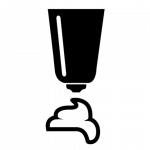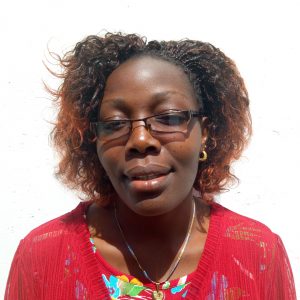Khwihondwe is a huge community with 700 people who rely on a crumbling spring whose protection was attempted in the past but no longer provides safe, sufficient water to meet community members' daily water needs.

"[The] water crisis in the community leads to a weak community which is not able to function well due to sickness and other challenges, thus affecting the daily schedule of community members," said Field Officer Jacqueline Kangu, describing the situation in Khwihondwe.
"The spring is broken down; therefore, [it is] exposed to contamination, making the community vulnerable to continued water-related infections," continued Jacqueline.
Water users report frequent cases of stomachaches, diarrhea, fever, and typhoid from drinking contaminated water. This limits everyone's progress by consuming their limited resources and keeping them out of work and school.

"I am very poor in a way that I am not able to take care of my own basic needs. I am forced to work for people to afford a single meal. When I fall sick due to taking dirty water, I usually feel so bad because my life stops moving," said 23-year-old farmer Elnah Atitwa, in pink above, carrying water home.
The spring is also difficult to access because it sits at the bottom of a steep slope. Adults find it challenging, and so do children like five-year-old Felix.

Felix.
"I don't like drinking this water when it's dirty because it makes me sick, and I fail to go to school, and this directly affects my performance," said Felix.
The proper protection of the spring will include stairs so people can safely access the spring while collecting water. It will also ensure the water flows from the collection pipe and is correctly filtered so it is safe to consume. These changes will make it possible for community members like Elnah and Felix to focus on the future instead of the roadblocks from the current water situation.

"Clean water will enable me to live healthily," concluded Elnah.
The Proposed Solution, Determined Together...
At The Water Project, everyone has a part in conversations and solutions. We operate in transparency, believing it benefits everyone. We expect reliability from one another as well as our water solutions. Everyone involved makes this possible through hard work and dedication.
In a joint discovery process, community members determine their most advantageous water solution alongside our technical experts. Read more specifics about this solution on the What We're Building tab of this project page. Then, community members lend their support by collecting needed construction materials (sometimes for months ahead of time!), providing labor alongside our artisans, sheltering and feeding the builders, and supplying additional resources.
Water Access for Everyone
This water project is one piece in a large puzzle. In Kenya, Sierra Leone, and Uganda, we're working toward complete coverage of reliable, maintained water sources that guarantee public access now and in the future within a 30-minute round trip for each community, household, school, and health center. One day, we hope to report that this has been achieved!
Training on Health, Hygiene & More
With the community's input, we've identified topics where training will increase positive health outcomes at personal, household, and community levels. We'll coordinate with them to find the best training date. Some examples of what we train communities on are:
- Improved hygiene, health, and sanitation habits
- Safe water handling, storage & treatment
- Disease prevention and proper handwashing
- Income-generation
- Community leadership, governance, & election of a water committee
- Operation and maintenance of the water point
Chlorine Dispensers
Installing chlorine dispensers is an important piece of our spring protection projects. Protecting a spring provides community members with an improved water source, but it doesn’t prevent contamination once the water is collected and stored. For example, if the water is clean and the container is dirty, the water will become contaminated.
We ensure that each chlorine dispenser is filled with diluted chlorine on a consistent schedule so that people can add pre-measured drops to each container of water they collect. That way, community members can feel even more confident in the quality of their water.

 Protected Spring
Protected Spring
 Rehabilitation Project
Rehabilitation Project

































